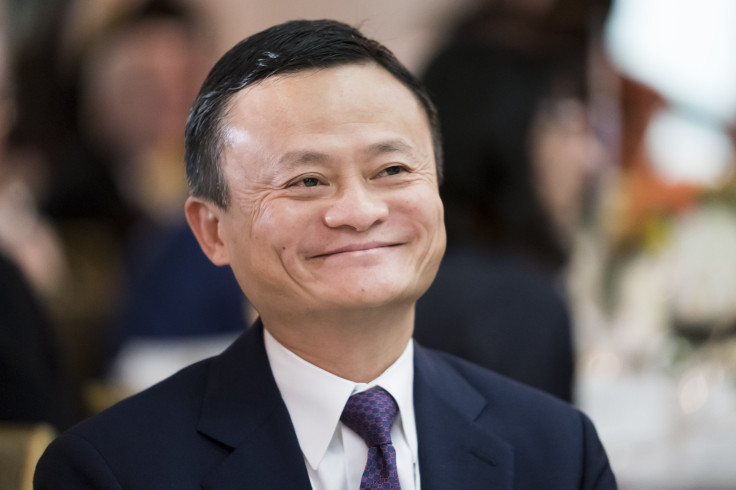Jack Ma’s Ant Group Fintech Firm Seeks Dual Listing Of IPOs On Hong Kong And China Exchanges

KEY POINTS
- Ant Group owns the popular mobile-payments network Alipay which has 900 million users in China
- Ant Group, which owns the popular mobile-payments network Alipay
- Alibaba currently owns about a 33% stake in Ant Group
Ant Group Co., a Chinese fintech company controlled by Alibaba (BABA) cofounder and billionaire Jack Ma is seeking to stage dual initial public offerings on the Shanghai and Hong Kong stock exchanges, thereby avoiding the New York bourses.
The company hopes to conduct the IPOs later this year and hopes to achieve a market valuation of $200 billion.
Ant Group, which owns the popular mobile-payments network Alipay, said it hopes the offerings will boost its growth both in China and abroad, while also accelerating “its goal of digitizing the service industry in China.”
Alipay has more than 900 million active users in China who use its app for online investing or to pay for groceries and utility bills.
Ant Group also has a large consumer lending unit, operates a private credit-scoring business and even manages one of the world’s largest money-market mutual funds.
In 2017 Ant Group attempted to purchase the U.S. money-transfer company MoneyGram International for $1.2 billion, but the transaction was nixed by a U.S. national-security panel.
In mid-2018, Ant Group was valued at $150 billion during a round of private fundraising from domestic and international investors.
Ant Group, a profitable firm, is domiciled in mainland China and will require the approval of Chinese regulators to list its shares in foreign markets.
The dual listing will occur amid a backdrop of rising tensions between Washington and Beijing, which has led to threats by U.S. lawmakers of delisting Chinese equities from American exchanges over accounting irregularities and lack of transparency. The U.S. has also criticized Beijing for its imposition of new security laws in Hong Kong.
A listing on Hong Kong will likely attract U.S. investors anyway since many U.S.-based money managers already hold Hong Kong-listed stocks.
Ant Group’s executive chairman Eric Jing also said the listing will help boost Shanghai’s STAR market, which is comparable to Nasdaq in that it focuses on tech stocks.
“We are thrilled to have the opportunity to play a part in this development,” he added.
“Ant Group is an important member of the Alibaba digital economy and we believe Ant’s listing plan will be beneficial to its future growth, creating value for its users, partners and shareholders,” Alibaba said in a statement.
Alibaba currently owns about a 33% stake in Ant Group.
Last year, Alibaba itself, which trades on the New York Stock Exchange, added a secondary listing in Hong Kong.
Hao Hong, a managing director and head of research at Bocom International in Hong Kong, said: “Now may be the best time for Ant to go public as investors’ enthusiasm has been the highest since 2015.”
But Pamela Chung, a Hong Kong-based managing director and head of IPO at the Tricor Group consultancy, cautioned: “Despite abundant capital, it is not sure how investors would view Ant Group since there are a lot of tech stocks [already] in the market.”
Bloomberg noted that dual listings in Shanghai and Hong Kong – which were once popular with large Chinese companies – has fallen in frequency in recent years partly due to the complex nature of conducting share offerings in two very different capital systems.
Referring to an earlier successful IPO of another Chinese firm, JD.com, in Hong Kong. Nikkei Asian Review wrote that it “could boost the hopes of companies that are lining up either for an initial public offering or a secondary listing [in Hong Kong] amid threats emerging from Washington about pushing Chinese companies off of American exchanges.”
Indeed, analysts expect more China-based stocks to list on the Hong Kong bourse instead of U.S. exchanges as tensions between Beijing and Washington escalate.
© Copyright IBTimes 2025. All rights reserved.





















